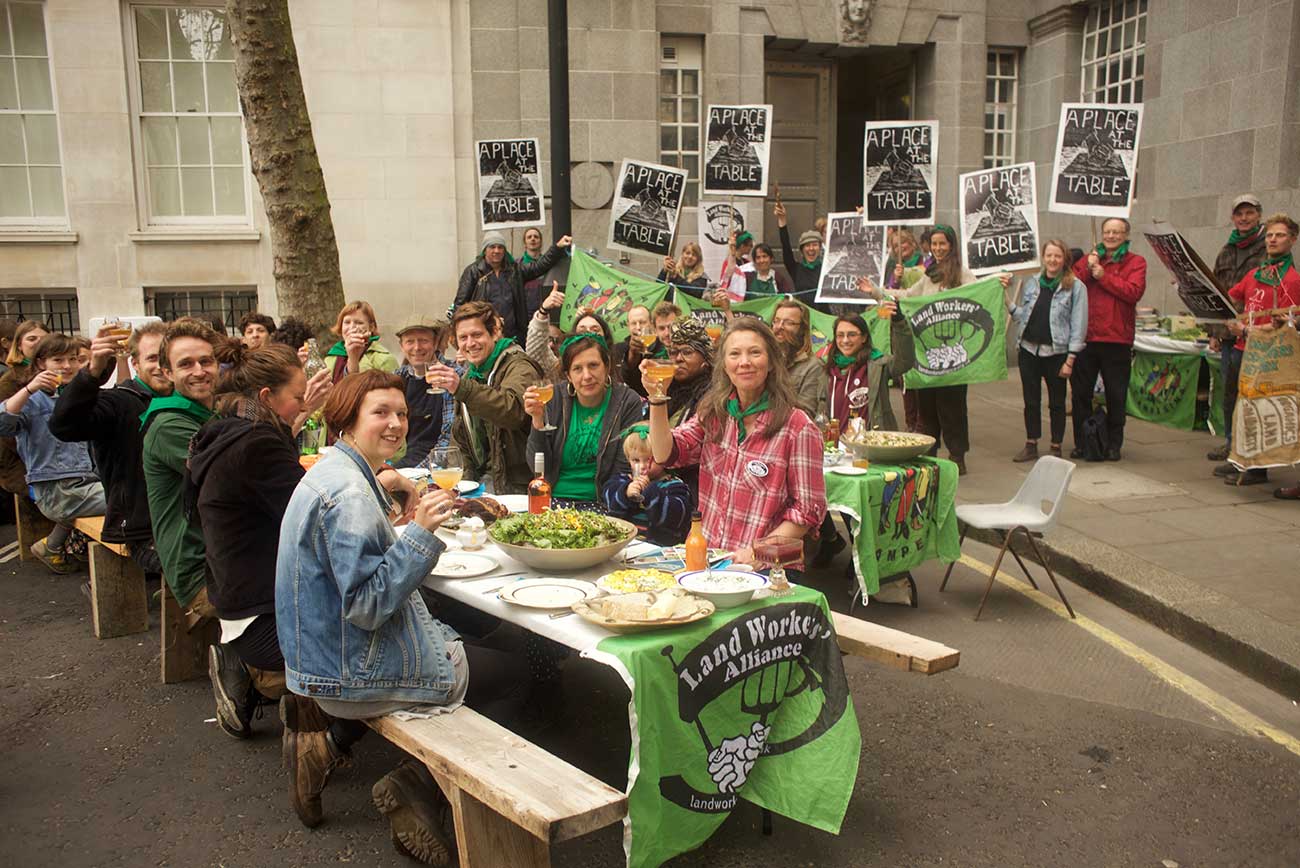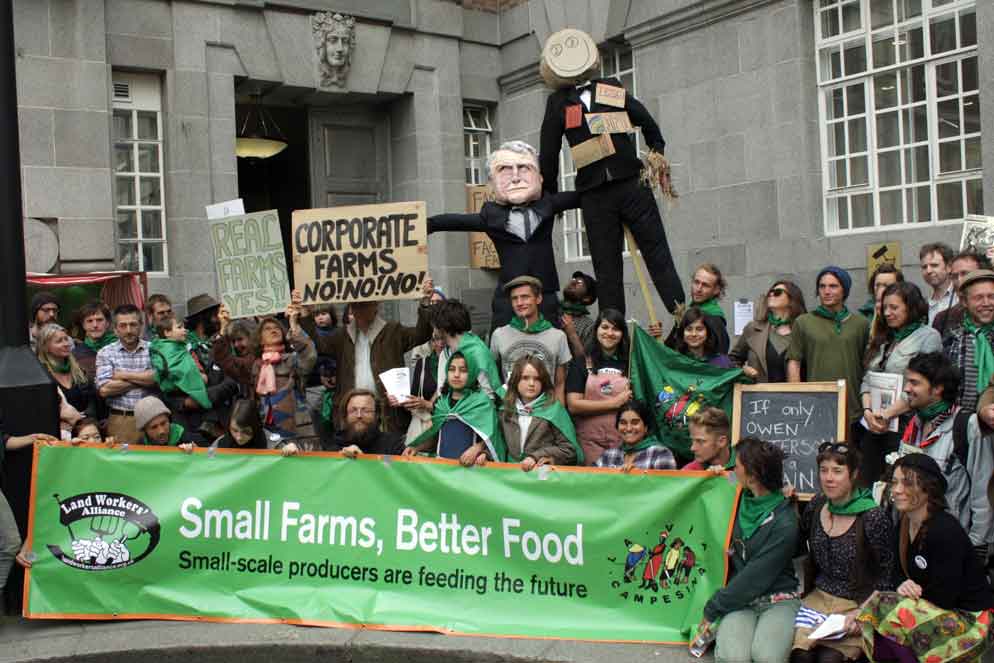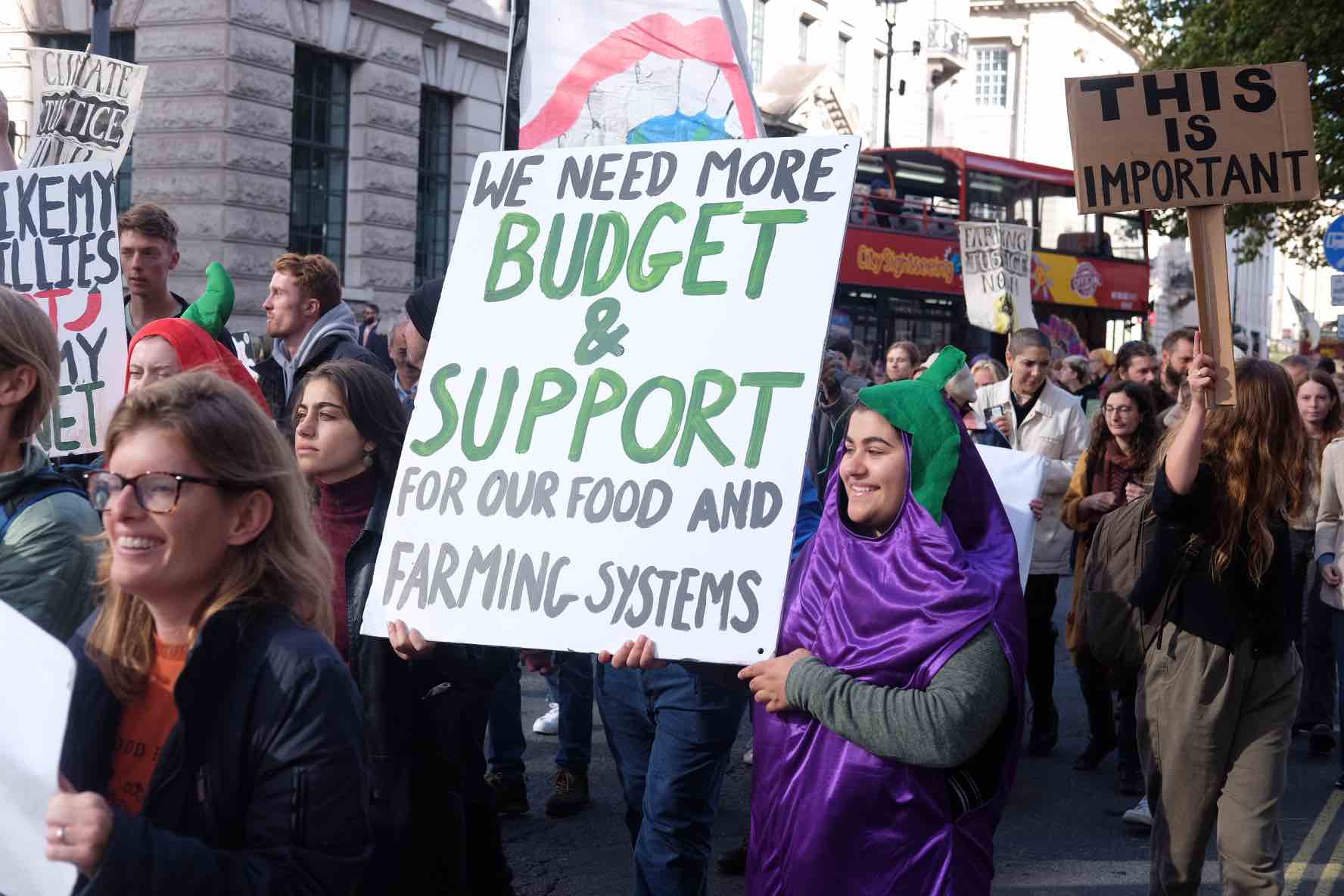As of July 2024 the Sustainable Farming Incentive will be open to all farms in England, regardless of size. This is great news for many of our members who operate farms and market gardens under 5 hectares as well as new entrants who would have previously been unable to meet the eligibility requirement of having ‘previously been in receipt of BPS.’
Extending eligibility for farming subsidies to small farms under 5ha is something that the Landworkers’ Alliance have been campaigning on for over a decade. In recent years it is something that has been consistently promised by civil servants for ‘some time in the future’, but we are extremely pleased to have confirmation from Defra that as of July 2024 the 5ha + eligibility requirement will be removed.
This means that all farms – regardless of whether they have received BPS in the past – will be eligible for the SFI, which has now been streamlined to also include mid-tier Countryside Stewardship scheme actions.
Ten years of campaigning
Ten years ago in April 2014, in response to the dominant rhetoric at the time, which was “Get Big or Get Out”, LWA organised a stunt outside the Defra offices where we set up a farmers’ market to demonstrate how small farmers are “feeding the future” and highlighted how Owen Paterson (then Agriculture Minister) was “in bed” with agribusiness, with each represented with a scarecrow.
Later in the year we published ‘Feeding the Future’ which highlighted how small- and medium-scale agroecological farmers can address the agricultural challenges of the 21st century. The document highlighted the injustice of the EU Common Agricultural Policy’s (CAP) Basic Payments Scheme (BPS) in rewarding large-scale farming that was environmentally destructive, but excluding small farms – which provide so many benefits in terms of biodiversity, soil health and public goods – from receiving support.
One of the specific recommendations in this report was for the UK to implement a cap on farming subsidies above 150,000 (which the EU gave as an option to all member states) and to use the money to support agroecological farms – including those under 5ha.


When the UK left the EU – and therefore the Common Agricultural Policy – in January 2016, we kicked into action to push for more support for small farms in the UK’s new farming policy. In April 2017, we once again headed to Defra’s offices to demand “A Place at the Table” in post Brexit negotiations about agricultural policy. That day we launched our ‘Recommendations for a Post-Brexit Agricultural Policy’ and invited Defra officers to join us for a local food feast outside Defra, where they could discuss our ideas over lunch. The report outlined the problem with an area-based subsidy system in which a minority of larger landowners were receiving the most support which smaller farms were receiving next to nothing.
We therefore called for a move away from area-based payments towards a system in which all agricultural payments are linked to the delivery of environmental, social and economic benefits. Unfortunately, Defra employees were not permitted to join us for the feast, but it was noticeable that following “A Place at the Table” LWA representatives started getting invited onto stakeholder groups and round tables. Moreover, the “Public Money for Public Goods” rhetoric brought in by Michael Gove, when he was Secretary of State for the Environment, represented a significant shift towards what we were calling for in our report.
This change is something we, and a coalition of other agricultural and environmental organisations, including Sustain, the Green Alliance and the Food, Farming and Countryside Commission, pushed hard for in the 2020 Agriculture Bill, which laid the foundations for the current Environmental Land Management Schemes (ELMS).


We have continued to work closely with Defra on the development of ELMS, helping to guide it in a way which will support small farms. We were an instrumental voice in helping to secure payments for things like agroforestry and bringing the concept of agroecology to Defra. A landmark was our “Agroecology in Action” event, which happened to fall the day after PM Boris Johnson had prorogued Parliament on 10th September 2019. MPs had been invited to hear eight agroecological farmers speak at Westiminster, while another local food feast was served. With many MPs at a loose end that day, word got around that delicious food and cider were available and the room was overflowing!
Over the last five years, LWA Campaign Coordinator Jyoti Fernandes has regularly attended meetings of the External Engagement Group of ELMS stakeholders, at which successive iterations of ideas for how to implement ELMS have been discussed. In 2020, LWA secured a contract to deliver an ELMS Test and Trial on horticulture, which became Growing the Goods (GtG), and were then invited to follow up with a phase 2 in 2022. While it has involved working with 90 growers from across the horticulture spectrum to co-design ELMS for growers, we have been able to engage in depth with our members and other small-scale, agroecological growers, to find out what would work best for them.
Still work to be done
Despite this change to eligibility there is, however, still work to be done. The amount of money a farm receives for the SFI actions is still calculated on a per-hectare basis, meaning that for small farms, the payments for many of the actions will remain negligible. This is why we need to keep pushing for actions such as agrobiodiversity, public engagement and using alternative animal feeds which will reward and support the important work that small farms are already doing.
We’re pleased to see that Defra have announced that later in 2024 a new SFI ‘educational access’ action will be introduced, which will pay farmers to provide educational tours on their farm or woodland. This is something we’ve been campaigning for alongside the Country Trust.
We are also pushing for specific SFI actions for small-scale horticulture and market gardens, a mechanism for measuring public goods with units other than area where appropriate, and incentives for stacking multiple “public goods” on one piece of land. Phase 2 of Growing the Goods will end on 31st July, and we look forward to the publication of the horticulture SFI actions, scheduled for 2025, in hope that our findings from four years of Tests and Trials, will have been translated into policy. You can find out more about Growing the Goods here.
In the meantime, for our Members who are now eligible for SFI actions, we recommend taking a look at:
– Defra’s‘Find funding’ tool
– For growers, this blog post from the Soil Association on how small-scale horticulture can engage in the SFI
– Sustainable Farming Incentive guidance for applicants

